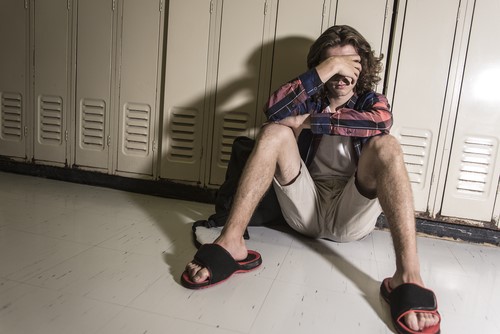4 Behavioral Signs of Substance Abuse

Addiction and substance abuse in children, teenagers, and adolescents is not always obvious. Behavioral signs can indicate that something is off with a beloved child and quickly reveal that substances are playing a part.
Loss of interest
Passion and a vertigo of focus are common characteristics of children. A child who has found their passion is inseparable from that passion. Where their love and loyalty lies is a place with an indestructible bridge in their life. Sudden departure from that place of love and devotion should catch the eye of any parent. Drug and alcohol addiction changes the chemistry of a child's brain, body, and personality, seeping into their lifestyle. Feeling consumed by guilt, preoccupied with substance abuse, or losing the ability to express what is going on with them, passions and interests fall to the wayside. A child might not necessarily be busy with other things, though that can be a sign. Staying out late, having other things to do, or never being home can be signs of substance abuse, if those behaviors are out of the ordinary. Conversely, a child may be home all the time, quietly shut in their rooms, and not engaging with anyone or anything.Sensitivity/Defensiveness
Mind-altering substances like drugs and alcohol change the way the brain works. A young person's brain is still developing until about the early or mid-twenties. Chemical alterations can cause disturbances in emotional regulation and emotional expression- both being actively developed and shaped. Children can be highly sensitive when their nerves are being altered by drugs and alcohol. When approached about their sensitivity or or defensiveness, a parent is only met with more.Low self-esteem
Drug and alcohol addiction does not feel good and often causes teenagers to act out as a result. Displays of low self-esteem are different for every child but obvious for the parent. Children might stop trying, stop participating, taking care of themselves, taking healthy risks, and more. Clearly demonstrated, children stop believing that they are worth the effort of themselves or others.Guilt
Guilt is common in drug and alcohol addiction. Though children might act defensively and inconsequentially, inside they are keeping track of the harms done to themselves and to others. Addiction, in many ways, ‘hijacks' the brain, causing children to act in ways they do not truly want to act, resulting in the hurt feelings of others. Unfortunately, addiction does not give children the pause that they need to evaluate their decisions and choose differently. Addiction has great demands and continues to build guilt, which then acts as ‘fuel for the fire' of addiction.Stonewater Adolescent Recovery Center is a private residential treatment program in Mississippi, serving adolescent and teenage boys with foundation building, life-cleansing programming for recovery. If addiction has found its way into the life your loved child, call us today for information on our clinical and academic support: 662-598-4214

.jpg)

